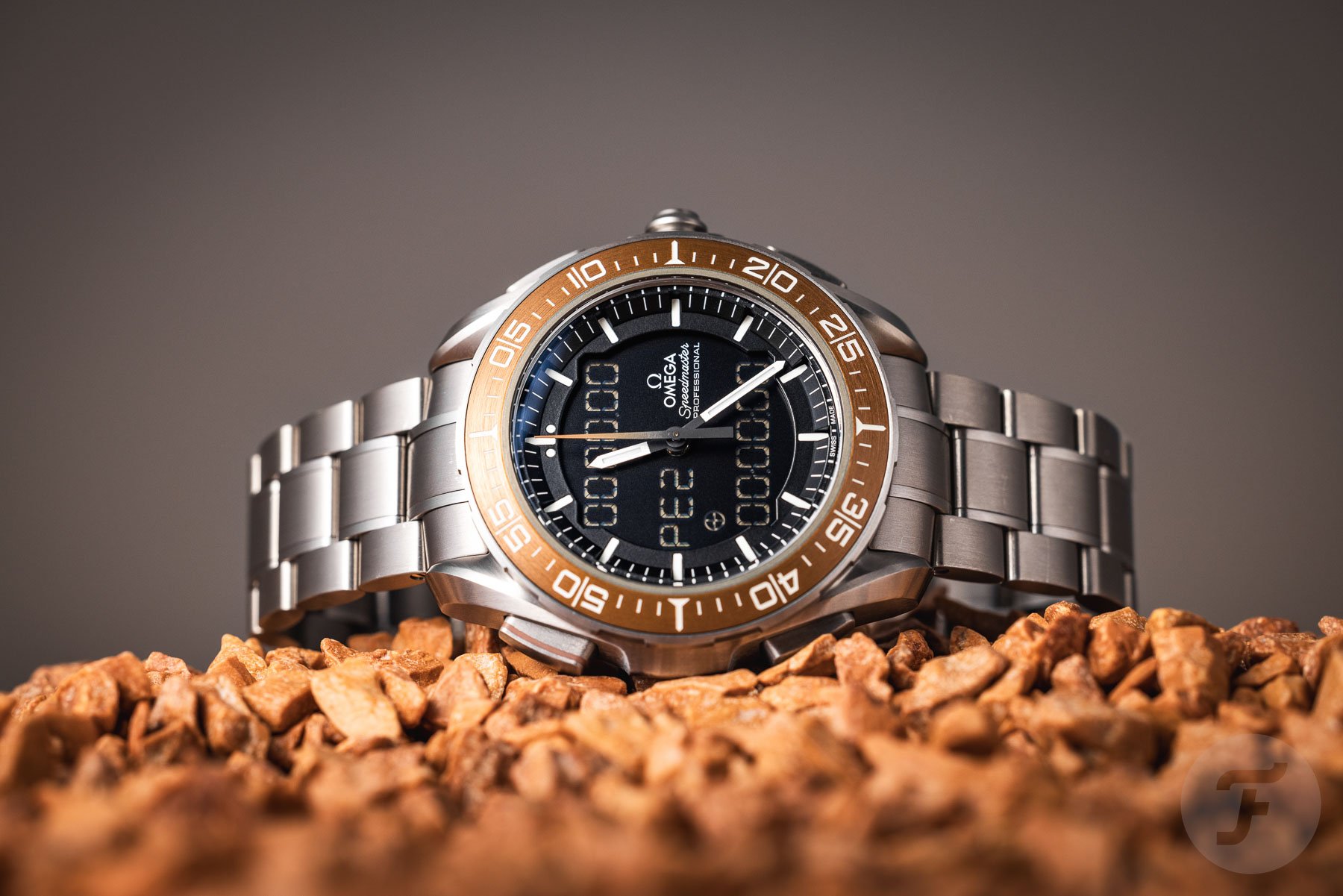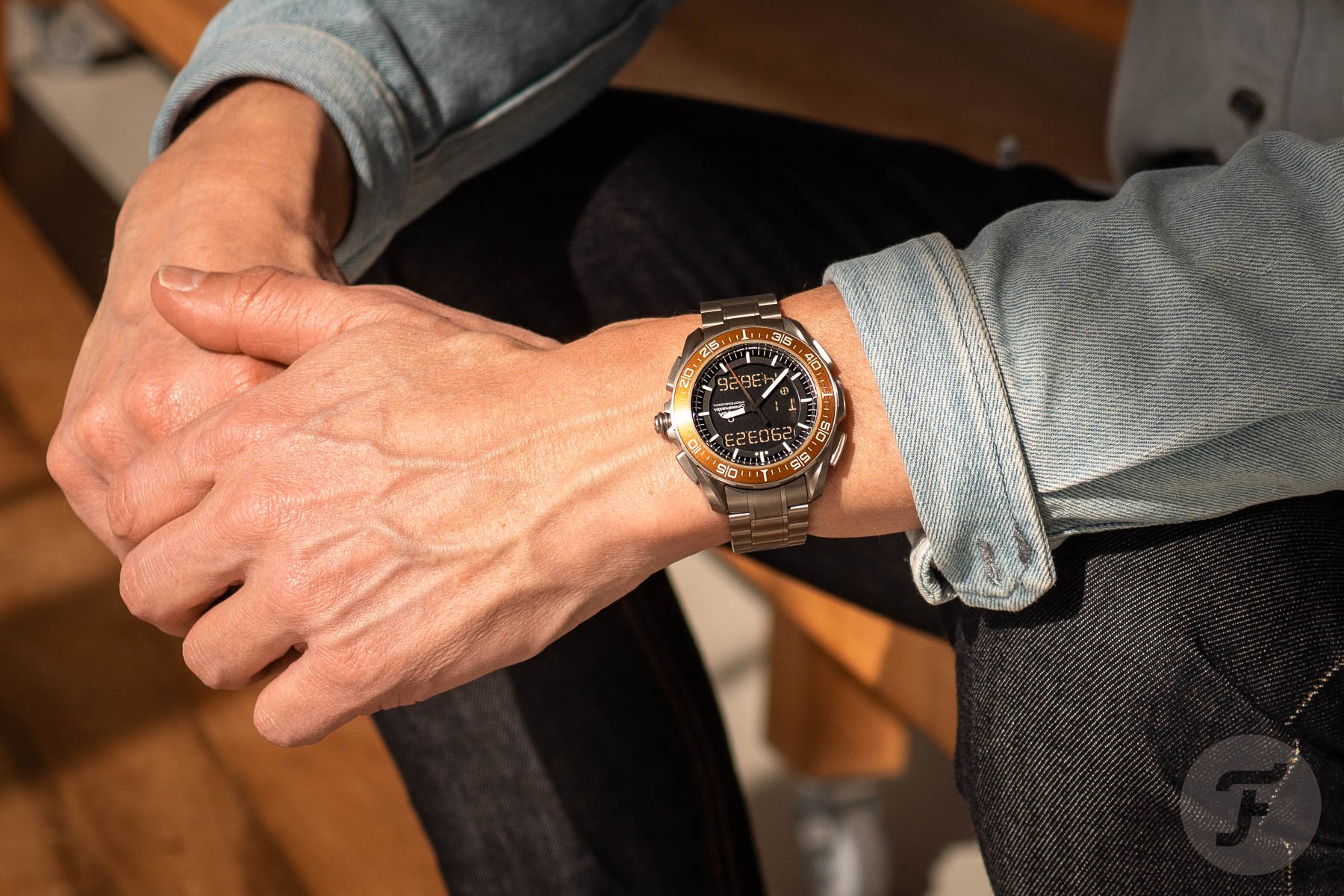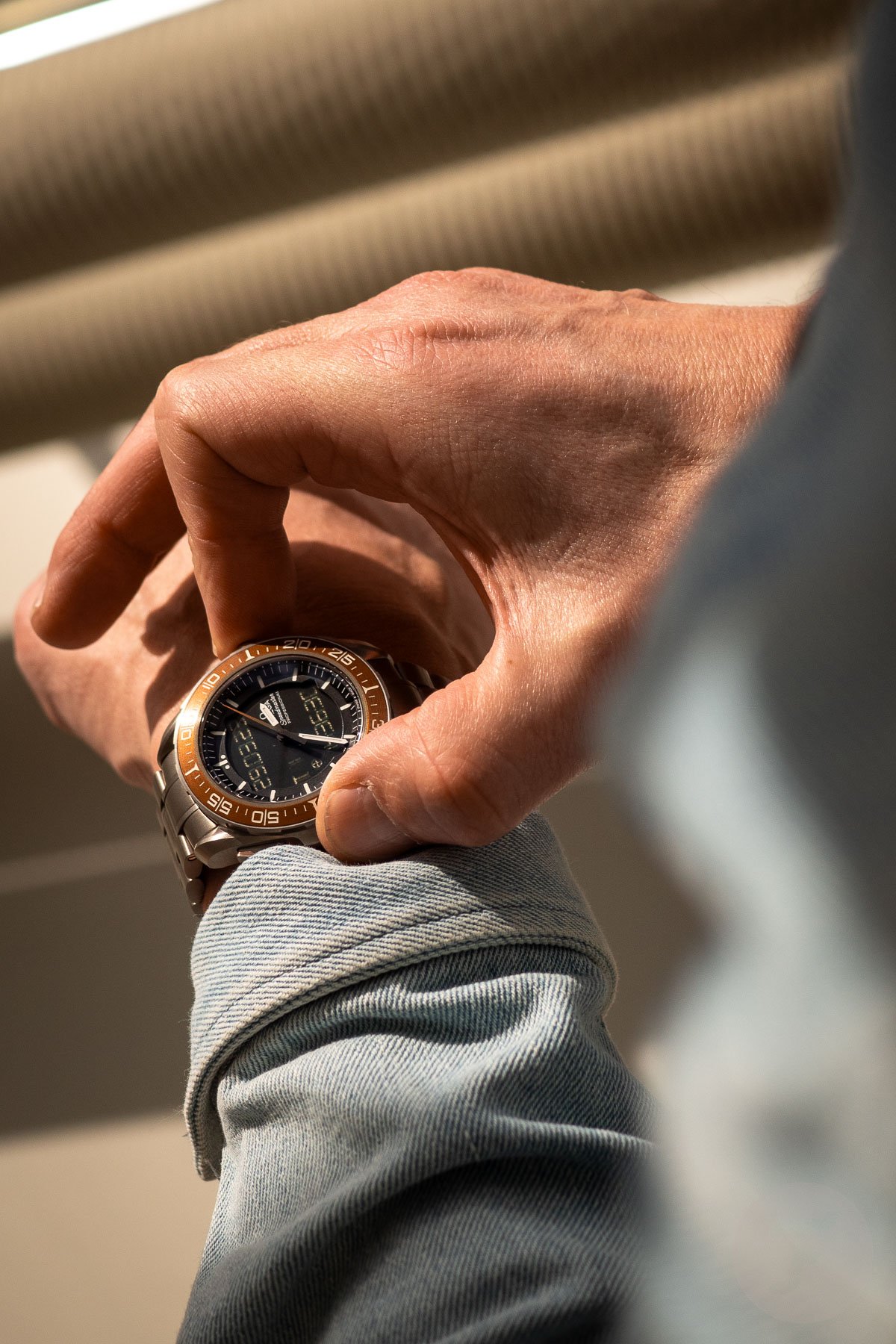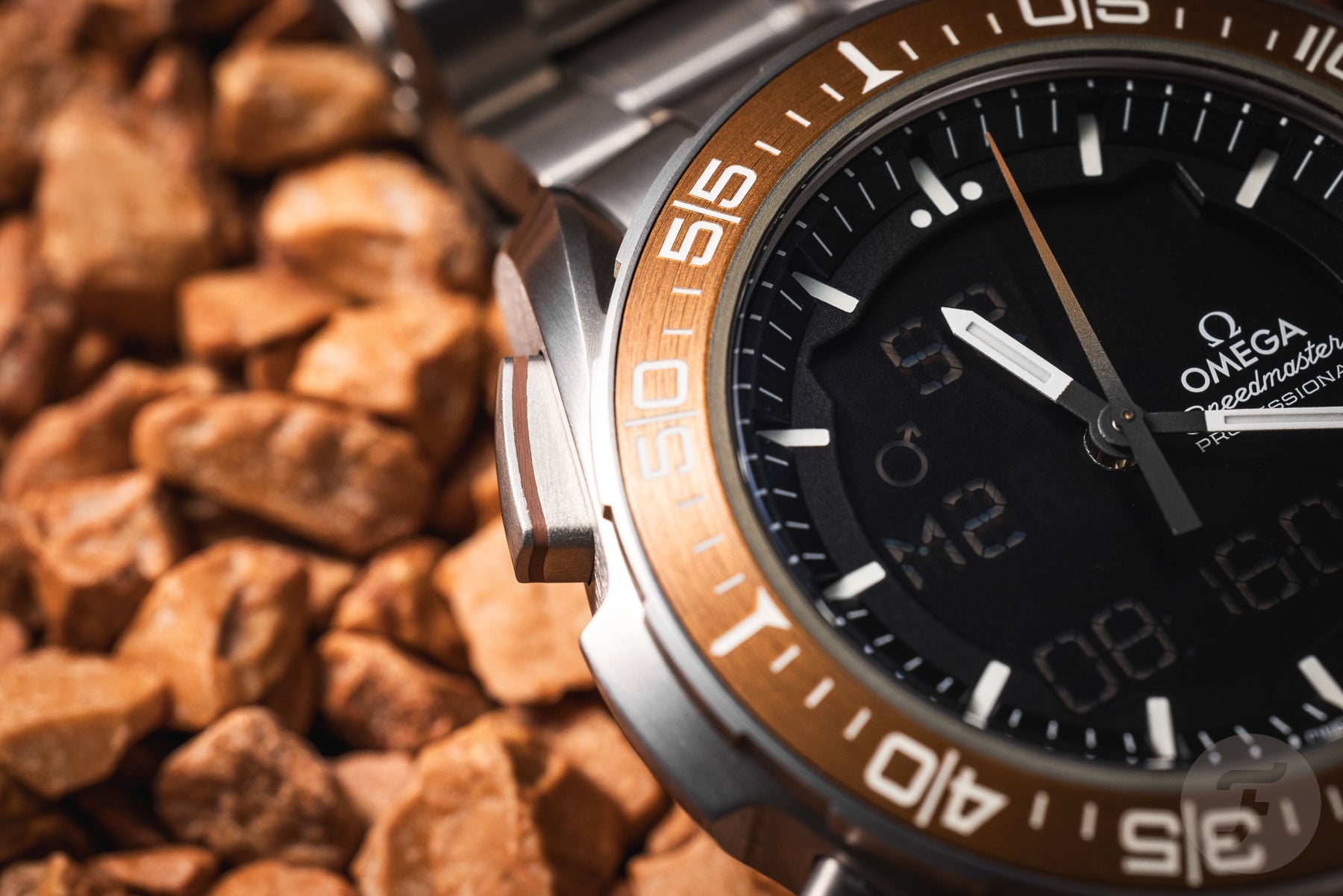Monday Morning On Earth With The Omega Speedmaster X-33 Marstimer
Let’s first make things very clear: the Omega Speedmaster X-33 Marstimer was never meant to be on the wrists of pioneering astronauts traveling to the Red Planet. Instead, this latest X-33 was designed to be on the wrists of people working in mission control here on Earth. Still, this quartz creation does make you wonder a couple of things. For example, what will a successor to the current X-33 look like? I picked up some rumors — nothing very concrete, unfortunately — that a new X-33 is on the (distant) horizon. Another thing I wonder is whether the next X-33 will be specifically designed for space-dwelling astronauts. Also, will this watch be powered by light? If it can’t travel at the speed of light, at least it should use it to fuel the movement.
It’s been a while since Omega launched the Speedmaster X-33 Marstimer. If you want to catch up, here is RJ’s introduction article. The watch debuted during a Speedy Tuesday event at the European Space Agency (ESA), and you can find out what that was like by going here. The setting was very appropriate with satellites hanging from the ceiling of the building and the presence of different ESA scientists and French astronaut Jean-François Clervoy telling interesting and compelling stories. They weren’t just stories about their space adventures but also about the functionality of the X-33 Marstimer. And since the Speedmaster X-33 Marstimer was born out of ESA’s request for Mars-specific timing functions, it’s also not a crowd-pleaser.
The intimidating Omega Speedmaster X-33 Marstimer
Saying that the Marstimer isn’t a crowd-pleaser is an understatement. In reality, this watch is an intimidating instrument. ESA challenged Omega to develop a watch that, for instance, takes into account that one day on Mars is 39 minutes and 35 seconds longer than one day on our planet. The watch also features a solar compass because Mars has no magnetic field. And that’s just the tip of the iceberg. The watch can do so much more. To fully appreciate and unlock the watch’s full potential, you need to go through a very elaborate manual. But many people, including me, don’t want to go through a manual.
That’s actually a thing — a big thing. There’s even a paper called Life Is Too Short to RTFM: How Users Relate to Documentation and Excess Features in Consumer Products. The paper teaches us that not only do most users not read manuals, but they also don’t use all the features of their products very regularly. The paper says that people read manuals just 25% of the time. Another fact is that men usually take more interest in reading the manual than women. Nevertheless, younger, more educated people don’t bother reading the manual at all.
Why don’t I want to dive into a manual? Is it because the instructions are tedious? Reading them would bore me or be a source of frustration. But maybe the real reason is laziness. What I do is depend on my intuition and common sense. Well, that might work with a new microwave, but it doesn’t fly with the X-33 Marstimer. Still, despite not being fully used, the watch with its 45 × 48.5 × 14.9mm titanium case and weight of 112 grams would sit and look great on my wrist.
Difficult to understand, great to look at
Even though I would probably never use the Speedmaster X-33 Marstimer the way it was intended, I still like it from an aesthetic perspective. The brushed titanium and the Mars-like color of the bezel combined with the ana-digi face make for a good-looking watch. I could even say the watch combines both nerdy and sartorial vibes, resulting in a compelling look. But with a watch like the X-33, it’s hard to just stick to the appearance when thinking and writing about it. So we dive back in and find the Omega caliber 5622, the battery-powered mathematical wonder inside the titanium case. This caliber is advanced in so many ways but, unfortunately, not in the way it’s powered.
Why is the new Speedmaster X-33 Marstimer not outfitted with a solar-powered quartz movement? Omega CEO Raynald Aeschlimann answered that question by saying that a movement like that was going to be less stable than a conventional battery-driven one. But there are quite a few highly capable and stable solar-powered watches around, so there must be more to it than that. Maybe the development of an in-house solar-powered quartz movement was prohibitively expensive and not a priority for a brand that is proud of its mechanical, METAS-certified, Co-Axial-escapement-equipped calibers. That’s very understandable, but after writing the story “Why We Need Luxury Solar-Powered Quartz Watches,” I can’t help but think that the X-33 is the perfect platform for a movement powered by light.
What’s next for the X-33?
The Marstimer might be the last of the X-33 kind. Rumors about a completely new version of the watch are persistent. As mentioned, earlier, though, I’ve heard nothing concrete. Maybe Omega is waiting to get on board the right spaceship to launch the next X-33. When looking at future ESA space missions on the agency’s website, I can’t find anything that demands astronauts wearing newly developed watches. NASA’s website is a little more promising when trying to link a mission to a possible watch. On the website, it reads: “NASA’s future will continue to be a story of human exploration, technology, and science. We will go back to the Moon to learn more about what it will take to support human exploration to Mars and beyond.”
Reading that makes me think of a Speedmaster X-33 Marslander, a titanium watch outfitted with a solar-powered quartz movement that takes into account everything you need to know and time while you’re on the Red Planet, not Earth. It would also come with a very substantial manual, I’m sure. But that doesn’t matter. If the upcoming Marslander looks as good and wears as nicely as the current Marstimer, I would still want to wear it.
What are your thoughts about an upcoming, upgraded X-33? Also, what is your take on manuals? Please share your thoughts in the comments.








